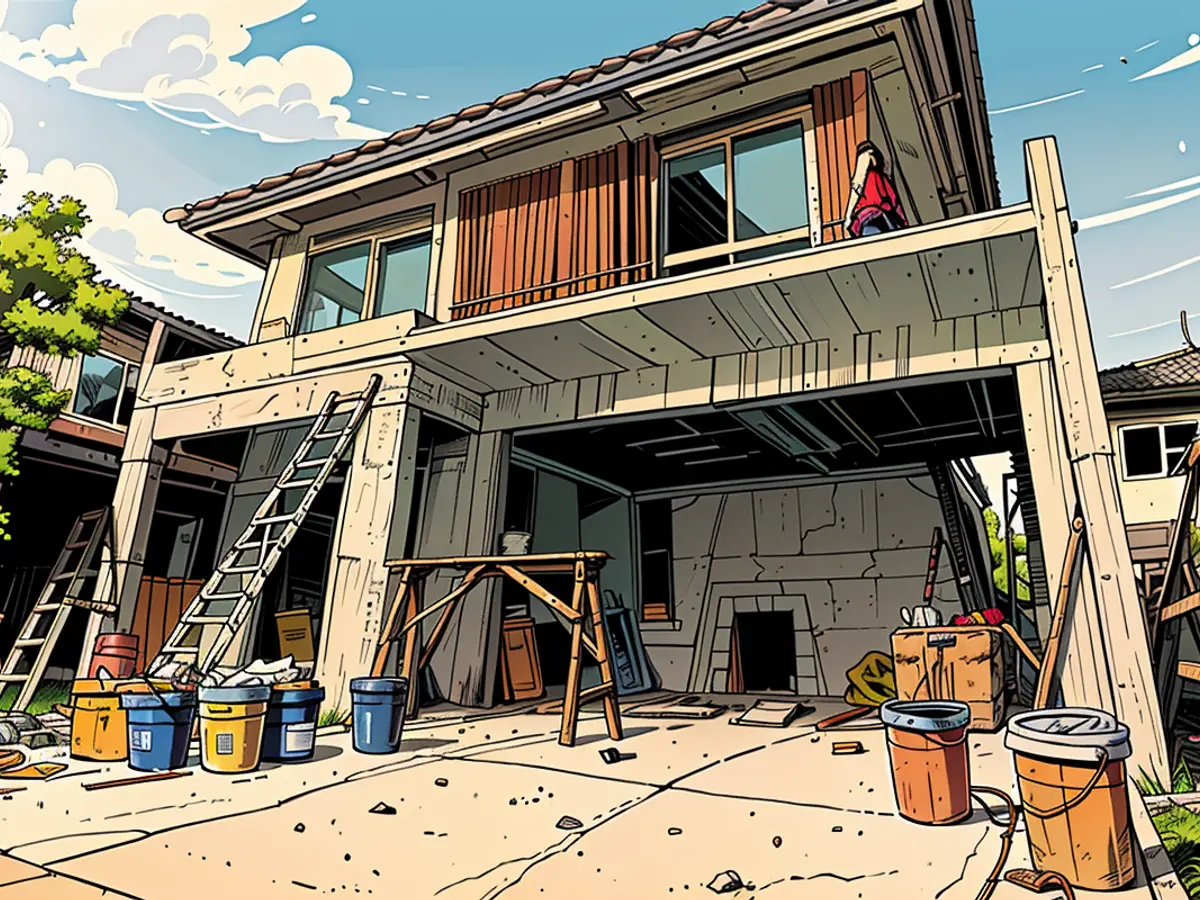Guaranteeing that Your Property Avoids Harm from Your Neighbor's Workers
Living in a crowded place like a city or even a spacious suburb has its perks, but it comes with its drawbacks. One of these drawbacks is having neighbors surrounding you, sometimes right on top of you, and in some cases, sharing a wall with your home. This close proximity to other people can be overwhelming or bothersome – there might be noise when you want silence, disagreements over boundaries, or simple personality conflicts.
Most of these disagreements don't result in property damage, but when neighbors hire contractors for home repairs, damages can occur, regardless of the contractor's skill, experience, and professionalism. When houses are close or even attached, there's always a possibility of some collateral damage when contractors arrive to repair a leased roof, a cracked foundation, or the facade of the neighbor's house. To prevent your neighbor's contractors from causing damage to your side of the property line, there are certain steps to take as soon as you learn about the upcoming renovation or repair project.
Document in advance
Large-scale construction projects often involve a premovement survey to assess the condition of adjacent properties and anticipate potential issues. You may not want to spend time and money on something that formal every time your neighbor needs to patch their roof, but performing a DIY survey beforehand by taking photos and noting the state of your property in potential contact zones is advisable.
For example, if your neighbor is getting a new roof, photograph your attic (if you're fortunate enough to have one) and the roof itself. Take note of any existing stains or old damage. If the roofers walk all over your roof and scuff materials across it, suddenly your roof starts leaking, at least you'll have proof that the damage was caused by their contractor.
Establish open communication
Good advice that stands the test of time is to always opt for communication and negotiation before taking any other steps. When you learn that your neighbor is undertaking some work that may affect your property (ideally because they have informed you in a timely manner), reach out and engage in a conversation with them about any concerns you may have.
It's wise to ask for their contractor's contact information as well, so you can discuss any protective measures they plan to take to protect your property. You should also obtain their license and insurance information – having a relationship with the contractor will go a long way in preventing issues before they even arise.
If the project is extensive – a whole-house renovation, or an addition – consider having a formal construction contract drafted. These usually focus on access, but you can expand their scope to include provisions regarding any damage caused by the work. This will likely require an attorney and a fee if you want to go the formal route, but if you're friendly with your neighbor, you could write up something less strict – the primary goal is to make your concerns clear, which can prevent problems down the line.
Take precautions
To prevent your home from being covered in dust or having its exterior scratched and dented by bits of debris, it's a good idea to spray exterior construction zones with water on a regular basis. Request that the contractors do this (professional ones will do it without being asked), or do it yourself if they refuse or forget. Spraying the area will significantly reduce dust and pebbles.
If an exterior wall is exposed to ongoing renovation work on the other side of your property line, you might consider covering it with a tarp temporarily to prevent any potential damage. You can also cover your windows with a protective film to prevent minor scratches and stains – or cover them up completely like you're preparing for a hurricane.
Conduct regular inspections
Even after discussing with your neighbor and their contractor, drawing up a contract, and documenting the condition of your house, it's essential to remain vigilant and conduct regular inspections of your property while work is ongoing. If roofers are working next door, inspect your roof daily or every other day. If they're working adjacent to your yard, check your landscaping and hardscaping. If they're digging in the basement, inspect the foundation walls. If you discover any damage, address it immediately with both your neighbor and their contractor. Every day that goes by between the contractors leaving and you realizing they've caused damage will make it more challenging to get it repaired or to obtain compensation for the problem, given that the direct connection between the work and the damage will gradually fade with time.
If you don't maintain a positive relationship with your neighbor, or don't trust the contractor, consider installing temporary surveillance cameras in vulnerable areas to keep an eye on your property. This way, you can quickly identify when damage occurred and what or who was responsible. Just ensure that you're not infringing on your neighbor's privacy when setting up the cameras, and keep them pointed at your property.
Stay proactive
Finally, when discussing your neighbor's project, be sure to accurately outline what's being done and anticipate potential issues.
- Vibrations. Is the job going to include tools that cause intense shaking, like drills or jackhammers? Make sure to take down anything hung on shared walls and empty out your shelves to prevent your valuables from shattering onto the ground.
- Windows. By closing your windows, you can keep dirt and other particles out of your home and lower the noise from your neighbor's renovation projects. Additionally, check your air filters more often if there's a lot of construction dust floating around.
- Patio and Outdoor Spaces. Clear your backyard or any other outdoor areas surrounding the work zone. Covering and moving furniture, grills, and other items may be a temporary hassle, but it could save you from having to buy new stuff in the long run.
While you can't completely avoid damage during your neighbor's renovation or repair work, these tips can help minimize the chances of damage occurring. It's always best to be prepared for any mishaps that might occur during the project.
The close proximity to other people in a crowded city or suburban area can sometimes lead to disagreements with neighbors, especially when contractors are hired for home repairs. Unfortunately, even skilled and experienced contractors can cause unintentional damage to adjacent properties while working on a neighbor's house, such as a leased roof or cracked foundation.
To protect your property from potential damages, documenting the condition of your house beforehand is essential. Taking photos and noting any existing stains or old damage can provide evidence in case of any damage caused by the contractor during the repairs.








